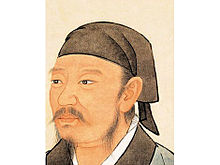Studying






Studying is the action of attempting to inquire knowledge, either by directly observing phenomena of interest, or by reading the writings of others about these phenomena.
Quotes
- When night hath set her silver lamp on high,
Then is the time for study.- Philip James Bailey, Festus (1813), scene A Village Feast.
- The seers of old had fully restrained selves, and were austere. Having abandoned the five strands of sensual pleasures, they practiced their own welfare. The brahmans had no cattle, no gold, no wealth. They had study as their wealth and grain. They guarded the holy life as their treasure.
- Gautama Buddha, Sutta Nipata, The Group of Discourses, K. R. Norman, trans. (Oxford: 2001), pp. 284-285
- Exhausting thought,
And hiving wisdom with each studious year.- Lord Byron, Childe Harold's Pilgrimage, Canto III (1816), Stanza 107.
- It is essential to every inquiry about duty that we keep before our eyes how far superior man is by nature to cattle and other beasts: they have no thought except for sensual pleasure and this they are impelled by every instinct to seek; but man's mind is nurtured by study and meditation.
- Cicero, On Duties, 1.105
- Me therefore studious of laborious ease.
- William Cowper, The Task (1785), Book III. The Garden.
- Beautiful objects are wrought by study through effort, but ugly things are reaped automatically without toil.
- Democritus (ca. 4th century BCE). Tr. Kathleen Freeman, Ancilla to the Pre-Socratic Philosophers: A Complete Translation of the Fragments in Diels, Fragmente der Vorsokratiker (1948)
- A subject interests me and holds my attention only so long as it presents me with difficulties, only so long as I am at odds with it and have, as it were, to struggle with it; but once I have mastered it I hurry on to something else, to a new subject; for my interest is not confined to any particular field or subject; it extends to everything human. This does not mean that I am an intellectual miser or egoist, who amasses knowledge for himself alone; by no means! What I do and think for myself, I must also think and do for others. But I feel the need of instructing others in a subject only so long as, while instructing others, I am also instructing myself.
- Ludwig Feuerbach, Lectures on the Essence of Religion, R. Manheim, trans. (1967), Lecture 1, p. 2
- Studious of elegance and ease.
- John Gay, Fables (1727), Part II. No. 8.
- For he was studious—of his ease.
- John Gay, Poems on Several Occasions (Ed. 1752).
- Do not say: ‘When I am free, I will study’; perhaps you will never be free.
- Hillel the Elder, Pirkei Avot 2:4.
- Pythagoras urged upon the young men … to observe how absurd it would be to rate the reasoning power as the chief of their faculties, and indeed consult about all other things by its means, and yet bestow no time or labor on its exercise. Attention to the body might be compared to unworthy friends, and is liable to rapid failure; while erudition lasts till death, and for some procures post-mortem renown, and may be likened to good, reliable friends. Pythagoras continued to draw illustrations from history and philosophy, demonstrating that erudition enables a naturally excellent disposition to share in the achievements of the leaders of the race.
- Iamblichus, “Life of Pythagoras”
- Every Israelite has a duty to study, whether he is poor or rich, whether healthy or suffering, whether young or very old and in failing strength, even if he is poor and supported by charity or begs from door to door.
- Moses Maimonides, Mishneh Torah, Treatise 3: “The Study of the Torah,” Chapter 1, Section 8, H. Russell, trans. (1983), p. 51.
- It is clear to you, I am sure, Lucilius, that no man can live a happy life, or even a supportable life, without the study of wisdom.
- Seneca, Moral Letters, R. Gummere, trans. (1917)
- I'll talk a word with this same learned Theban.
What is your study?- William Shakespeare, King Lear (1608), Act III, scene 4, line 162.
- What is the end of study? Let me know?
Why, that to know, which else we should not know.
Things hid and barr'd, you mean, from common sense?
Ay, that is study's god-like recompense.- William Shakespeare, Love's Labour's Lost (c. 1595-6), Act I, scene 1, line 55.
- Study is like the heaven's glorious sun
That will not be deep-searched with saucy looks;
Small have continual plodders ever won,
Save base authority from others' books.- William Shakespeare, Love's Labour's Lost (c. 1595-6), Act I, scene 1, line 84.
- So study evermore is overshot;
While it doth study to have what it would
It doth forget to do the thing it should,
And when it hath the thing it hunteth most,
'Tis won as towns with fire, so won, so lost.- William Shakespeare, Love's Labour's Lost (c. 1595-6), Act I, scene 1, line 143.
- Verily, the soul is content when that which it desires is learned, and becomes importunate in its pursuit when it is spurned.
- Usama ibn Munqidh, The Book of the Staff, translated by Paul M. Cobb (Penguin: 2008), p. 245.
- Studiis florentem ignobilis oti.
- Priding himself in the pursuits of an inglorious ease.
- Virgil, Georgics (c. 29 BC), 4. 564.
- School children and students who love God should never say: “For my part I like mathematics”; “I like French”; “I like Greek.” They should learn to like all these subjects, because all of them develop that faculty of attention which, directed towards God, is the very substance of prayer.
- Simone Weil, “Reflections on the Right Use of School Studies with a View to the Love of God” (1942)
- If we have no aptitude or natural taste for geometry this does not mean that our faculty for attention will not be developed by wrestling with a problem or studying a theorem. On the contrary it is almost an advantage. ... Without our knowing or feeling it, this apparently barren effort has brought more light into the soul. ... Every time that a human being succeeds in making an effort of attention with the sole idea of increasing his grasp of truth, he acquires a greater aptitude for grasping it, even if his effort produces no visible fruit.
- Simone Weil, “Reflections on the Right Use of School Studies with a View to the Love of God” (1942)
- Learning proceeds until death and only then does it stop. ... Its purpose cannot be given up for even a moment. To pursue it is to be human, to give it up to be a beast.
- Xun Zi, "An Exhortation to Learning," Readings in Classical Chinese Philosophy (2001), p. 258
- A person who is transformed by the instructions of a teacher, devotes himself to study, and abides by ritual and rightness may become a noble person, while one who follows his nature and emotions, is content to give free play to his passions, and abandons ritual and rightness is a lesser person.
- Xun Zi, “Human Nature is Evil,” Sources of Chinese Tradition (1999), vol. 1, p. 180
Hoyt's New Cyclopedia Of Practical Quotations
- Quotes reported in Hoyt's New Cyclopedia Of Practical Quotations (1922), p. 757.
- O Granta! sweet Granta! where studious of ease,
I slumbered seven years, and then lost my degrees.- Christopher Anstey, New Bath Guide, Epilogue.
- Histories make men wise; poets, witty; the mathematics, subtile; natural philosophy, deep; morals, grave; logic and rhetoric, able to contend.
- Francis Bacon, Of Studies.
- Hæc studia adolescentiam alunt, senectutem oblectant, secundas res ornant, adversis solatium et perfugium præbent, delectant domi, non impediunt foris, pernoctant nobiscum, peregrinantur, rusticantur.
- These (literary) studies are the food of youth, and consolation of age; they adorn prosperity, and are the comfort and refuge of adversity; they are pleasant at home, and are no incumbrance abroad; they accompany us at night, in our travels, and in our rural retreats.
- Cicero, Oratio Pro Licinio Archia, VII.
- As turning the logs will make a dull fire burn, so changes of studies a dull brain.
- Henry Wadsworth Longfellow, Drift-Wood, Table Talk.
- You are in some brown study.
- John Lyly, Euphues. Arber's Reprint, p. 80. (1579). The phrase is used by Greene—Menaphon. Arber's Reprint, p. 24. (1589). Also in Halliwell's Reprint for the Percy Society of Manifest Detection … of the use of Dice at Play. (1532).
- Beholding the bright countenance of truth in the quiet and still air of delightful studies.
- John Milton, Reason of Church Government, Introduction, Book II.
- Studious of ease, and fond of humble things.
- Ambrose Philips, Epistles from Holland, to a Friend in England, line 21.
- One of the best methods of rendering study agreeable is to live with able men, and to suffer all those pangs of inferiority which the want of knowledge always inflicts.
- Sydney Smith, Second Lecture on the Conduct of His Understanding.

